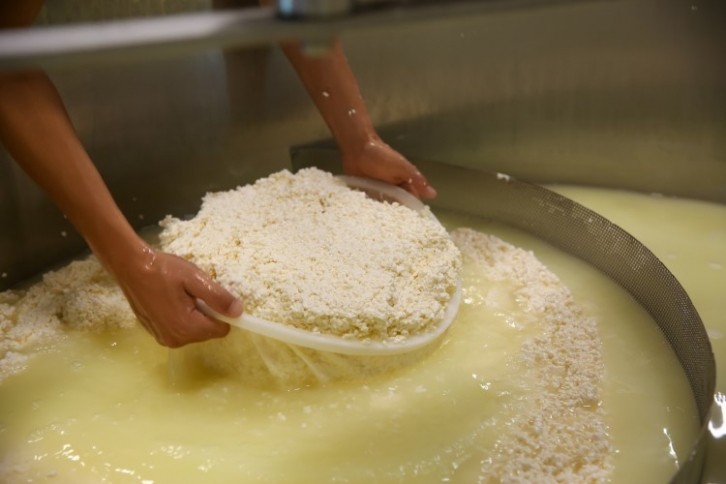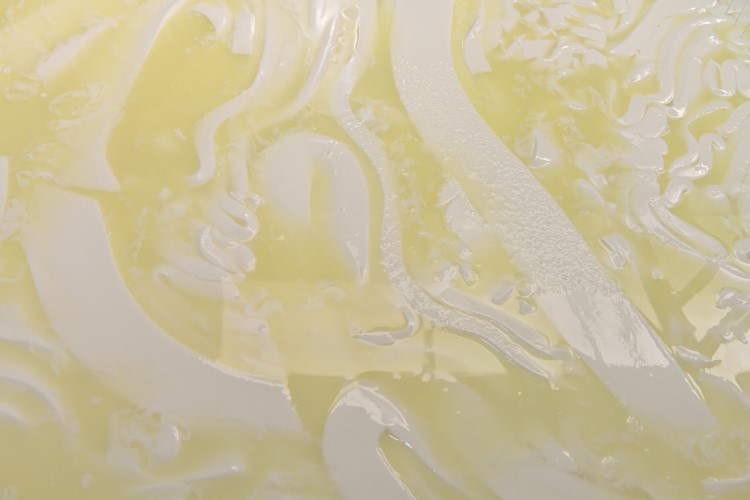Foremost Farms will leverage Ginkgo’s bioproduction companies – significantly, pressure optimization – to develop and commercialize a brand new expertise that’s extra environmentally-friendly than current chemical manufacturing strategies all whereas enabling the dairy to upcycle billions of kilos of dairy co-products annually. These co-products will probably be changed into different industrial inputs, creating new income streams for the dairy whereas serving to it to decrease its carbon footprint and manufacturing prices.
However how does all of it work precisely? We spoke to Ginkgo Bioworks’ Jack Cavanaugh, affiliate director on the corporate’s business crew, and Sneha Srikrishnan PhD, senior director of enterprise growth, to search out out extra concerning the challenge, particulars of that are nonetheless being stored confidential.
Producing value-added supplies from waste
Ginkgo Bioworks is a biotechnology firm that provides cell programming companies for numerous markets, from meals and agriculture to prescription drugs and the chemical compounds business. The corporate additionally runs a biosecurity and public well being unit the place it leverages science and synthetic intelligence to detect organic threats.
“Our hottest companies within the dairy business are our Ginkgo Enzyme Providers for growing higher enzymes and Protein Expression Providers for different protein manufacturing,” Jack Cavanaugh defined. “These are a part of our tailor-made suite of GM and non-GM organism engineering companies for the choice protein substances market, together with manufacturing of nature equivalent protein sequences as dairy substances. We now have developed GRAS pressure belongings – yeasts and filamentous fungi – that may ‘communicate’ to COGs [cost of goods sold] discount for fermentation of protein substances equivalent to whey proteins or caseins, improved media and fermentation situations for the strains developed, and distinctive non-GM approaches that may be utilized to microbes as probiotics, or for upcycling dairy waste.”
Whereas upcycling co-products equivalent to whey and lactose isn’t new, the method could be costly, energy-intensive and never as accessible to producers that can’t afford the funding in tools or house. That is the place the brand new expertise is available in.
“As a result of the breakdown of waste is so typically organic, we will take the identical microbes that devour waste and engineer their metabolisms to supply inputs to different components of business processes,” Cavanaugh defined.
“This helps firms shut the loop of their round manufacturing and provide chains, and provides them a chance to each save on waste disposal prices and on enter procurement prices, all whereas serving to the planet.”
This may additionally enable Foremost Farms to entry markets that had not been viable for upcycled waste beforehand, we had been informed.

“Upcycling this waste stream shouldn’t be novel, however working with Ginkgo to design an answer that’s globally aggressive with out by-products and different capex danger, is novel,” Cavanaugh concluded.
Whereas particulars concerning the technical points of the challenge – together with what sort of dairy co-products will probably be upcycled – are stored underneath wraps, Cavanaugh stated that “it’s price highlighting that valorization, or the manufacturing of worthwhile supplies from what firms may take into account waste, is an unbelievable alternative that cell engineering may help firms notice”.
A timeframe on when the expertise will probably be finalized has not been set both. “As with all our collaborators, we’ll present updates on this program in partnership with Foremost as finest serves our companions’ aggressive footing,” Cavanaugh informed us.
Pressure engineering for Vivici
Moreover engaged on making a biotech resolution for upcycling dairy co-products with the Midwest dairy co-operative, Ginkgo Bioworks additionally just lately introduced a collaboration with precision fermentation dairy start-up Vivici. Ginkgo is ready to ship ‘optimized strains for dairy protein manufacturing through precision fermentation’. It will contain screening for strains with the perfect protein expression, rising probably the most promising strains and providing these to Vivici for analysis. All this with the goal to develop and commercialize a brand new era of useful alt proteins, particularly animal-free protein.
In accordance with Ginkgo’s Sneha Srikrishnan PhD, senior director of enterprise growth, precision fermentation has just lately seen a rise in ingredient growth for whey proteins and caseins, in addition to lactoferrin. The advantages of the manufacturing course of are a number of.
“Precision-fermented dairy substances provide further advantages in comparison with traditionally-sourced dairy equivalent to much less environmental influence, shorter provide chains, and animal-free claims,” she stated. “Dairy substances are nice targets for precision fermentation as they supply nature-identical amino acid content material, could be managed when it comes to purity of product (diminished by-product profile) and could be blended or formulated as substances into alt dairy merchandise or hybrid meals to supply performance (creaminess, texture or stretch) which might be a problem for plant-derived substances alone.
“Lastly, pointers on utilization charge limits of different protein substances in formulations (toddler, or sport for instance), could be very useful to find out the position of and demand for precision fermented substances within the not-so distant future.”
Requested what had been her hopes concerning the business’s growth going ahead, she informed us: “It will be nice to see regulatory our bodies open to natural-similar proteins, which can have completely different and helpful submit translational modifications – glycan profile for instance – to enhance on value of manufacturing of those proteins through fermentation and higher margins to producers.
“Precision-fermented dairy substances are the very same molecules which are present in nature however are generated utilizing a special course of than animal agriculture.”
Readability on novel meals, new hybrid meals and meals security guidelines would even be ‘a step in the best course,’ she added, and would assist bridge style, off-flavor or texture gaps that show difficult for plant based mostly options.

